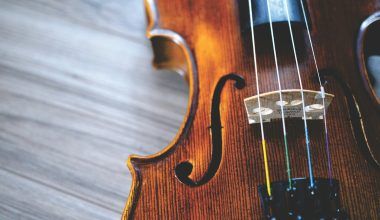Music has been a part of human life for centuries. It speaks a language that transcends borders, cultures, and even time. Among all the compositions created, the works by musical masters hold a unique charm. These masterpieces are not just a reflection of their time but continue to move and inspire us today. Why is it that certain music stands out as timeless? The answer lies in the genius of the creators who poured their hearts and souls into every note and melody.
Who Are the Masters of Music?
When we think of the greats in music, names like Beethoven, Mozart, Bach, and Chopin often come to mind. These composers have shaped the way we experience music, crafting pieces that feel alive even centuries after they were written. Their music tells stories, evokes deep emotions, and often reflects the struggles and triumphs of their lives. But the masters aren’t limited to the classical era. Artists like Louis Armstrong, Duke Ellington, and Ella Fitzgerald brought jazz to life, while modern greats like Leonard Bernstein and John Williams have added their magic to contemporary music.
Why Music by the Masters Resonates With Us
Have you ever listened to a piece of music that gave you goosebumps? That’s the power of music by the masters. These compositions resonate deeply because they tap into universal human emotions. A symphony by Beethoven can make you feel joy, sorrow, or triumph all at once. Similarly, the delicate piano melodies of Chopin often evoke a sense of longing or nostalgia. These works are more than notes on a page; they are a window into the human soul.
The Emotional Power of Melodies
Music by the masters is not just about technical skill; it’s about emotion. Take Mozart’s Symphony No. 40, for example. Its haunting melodies carry an undercurrent of tension and drama, reflecting the complexity of human emotions. Or consider Bach’s Brandenburg Concertos, which are full of intricate harmonies that uplift the spirit. These compositions don’t just entertain—they connect us to something bigger than ourselves.
How the Masters Innovated Music
The musical masters didn’t just follow trends; they set them. Beethoven, for instance, pushed the boundaries of the symphony, transforming it into a monumental form of expression. Bach’s genius lay in his ability to weave complex counterpoints, creating layers of sound that feel almost otherworldly. Meanwhile, jazz masters like Louis Armstrong revolutionized music by introducing improvisation, proving that music could be spontaneous and personal.
The Role of Music in Our Lives
Imagine a world without music. It’s almost unthinkable. Music is woven into the fabric of our daily lives, from celebrations to moments of solitude. And when it comes to music by the masters, the impact is even more profound. These compositions often accompany us during important life events, becoming the soundtrack to our memories. A wedding might feature Pachelbel’s Canon in D, while a quiet evening might call for a soothing Chopin nocturne.
Music by the Masters in Modern Times
Even in today’s fast-paced world, music by the masters remains relevant. Films, advertisements, and even video games often use classical compositions to evoke specific emotions. Think of how John Williams’s scores for movies like Star Wars and Harry Potter have become iconic. While rooted in modernity, these scores draw heavily from the traditions established by classical masters. This blending of old and new keeps these timeless pieces alive for new generations.
How to Appreciate Music by the Masters
You don’t need to be a musician to enjoy the beauty of classical music or jazz. Start by simply listening. Choose a quiet moment, close your eyes, and let the music take you on a journey. Focus on how it makes you feel. Does it bring up memories? Does it inspire you? Over time, you may find yourself drawn to certain composers or styles. And if you’re curious, learning about the lives of these masters can deepen your appreciation even more.
The Influence of Music Masters on Other Art Forms
It’s not just music that’s been influenced by these geniuses. Painters, writers, and filmmakers have all drawn inspiration from music by the masters. The rhythm of a Beethoven symphony can mirror the structure of a novel, while the emotional depth of a Chopin piece can be seen in the brushstrokes of an impressionist painting. This interplay between art forms highlights the universal appeal of great music.
Why We Should Keep Listening
In a world full of distractions, taking the time to listen to music by the masters can feel like a form of meditation. It allows us to pause, reflect, and connect with something timeless. These compositions remind us of our shared humanity and the beauty that comes from creativity and expression.
Conclusion: A Legacy That Lives On
The genius of music by the masters is not confined to the past. Their work continues to influence and inspire, proving that great art transcends time. Whether you’re a lifelong fan or just beginning to explore these timeless pieces, there’s always something new to discover. So, the next time you hear a classical symphony or a jazz standard, take a moment to appreciate the artistry behind it. After all, this is the legacy of the masters: music that speaks to the heart, generation after generation.
Keep exploring, keep listening, and let the music of the masters enrich your life. Whether it’s Bach, Beethoven, or the swinging tunes of Duke Ellington, their work invites us to feel, dream, and connect in ways words often cannot.
For further reading, explore these related articles:
- Taylor Swift Spotify Streams: How She Became the Queen of Streaming
- Mo Bamba Lyrics: The Story of a Song That Took the World by Storm
For additional resources on music marketing and distribution, visit DMT Records Pvt. Ltd..






